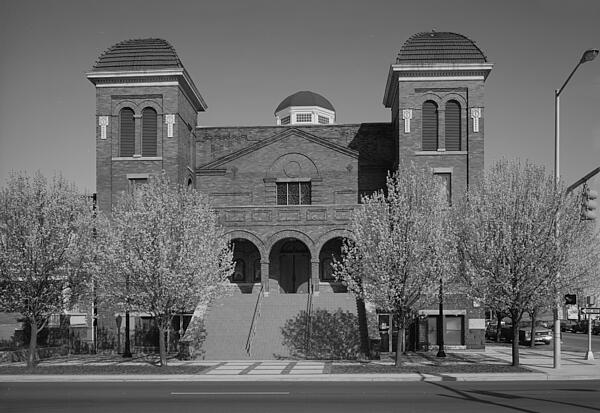1963 Birmingham Church Bombing
15 September 1963 is remembered as one of the darkest days in the Civil RIghts Movement; on this day a bomb exploded at the Sixteenth Street Baptist Church in Birmingham Alabama. The 1963 Birmingham Church Bombing is remembered as one of the darkest days in the Civil Rights Movement. The blast killed four girls who were preparing for a church service and left many others injured. The nation greeted the racial atrocity with abject horror.
At the time of the bombing, racial tensions were running high in Birmingham. The civil rights movement had focused much of its activities on the city, which was renown for its racism and continued segregation. The Sixteenth Street Baptist Church was targeted for being an organisational centre for the movement in Birmingham.
The church bombing was far from the first racial attack in the city. Following the Birmingham Movement in the Spring of 1963, many white residents fought back against the move towards desegregation in schools and public places. The SCLC-led campaign had incited racial tensions and the incidents of violence had risen dramatically in the months leading up to the attack. In fact, the 1963 Birmingham Church Bombing was the 21st bombing against African Americans in eight years. The fact that none of the prior crimes had been solved is evidence of the inherently racist police force in Birmingham.

The KKK thrived in Birmingham. The chief of police, Bull Connor, opposed the civil rights movement. This made it easy for the KKK to use terrorism to intimidate the black community.
Riots broke out following the church bombing. Two African American boys, Virgil Ware and Johnny Robinson were also killed - Ware by a white teenager and Robinson by a police officer. Alabama Governor George Wallace sent 500 National Guardsmen and 300 state troopers to the city to control the unrest.
Even though the FBI identified the four men involved with the attack in 1964, bo convictions were made until 1977. On 13 May 1965, a local agent wrote:
“The bombing was the handiwork of former Klansmen Robert E. Chambliss, Bobby Frank Cherry, Herman Frank Cash and Thomas E. Blanton, Jr.”
However, FBI Director J. Edgar Hoover blocked the prosecution of the four men. Hoover, an opponent of the civil rights movement, has now been accused of withholding incriminating evidence from state prosecutors for years.
In 1977, a known member of the KKK, Robert Chambliss, was charged and given a life sentence for his role in the crime.
The case was reopened in 1980, when it was revealed that Hoover had blocked evidence. However, no new charges were filed.
The was reopened again in 1988, following the confession of Gary A Tucker, who was dying of cancer. In May 2000, Thomas Blanton and Bobby Frank Cherry surrendered to the authorities after they were indicted on four counts of first-degree murder and “universal malice”. One year later, Blanton, aged 62, was sentenced to life in prison after being found guilty on four counts of murder. FBI tape recordings of Blanton from the 1960s were eventually brought to light. These ‘Kitchen Tapes’ recorded Blanton telling his wife about the planned bombing.
"I guess the good Lord will settle it on Judgment Day," Blandon said after the verdict was announced.
"I'll sleep well tonight, better than I've slept in many years," said the Rev. Abraham Lincoln Woods, a leader of Birmingham's black community who pushed authorities to reopen the case.
Woods, the president of Birmingham's Southern Christian Leadership Conference and pastor at St. Joseph Baptist Church, said the verdict "makes a statement of how far we've come".
Cherry was also sentenced to life in prison and died in November 2004 of cancer.
See also: John Kennedy and Civil Rights
MLA Citation/Reference
"1963 Birmingham Church Bombing". HistoryLearning.com. 2025. Web.
